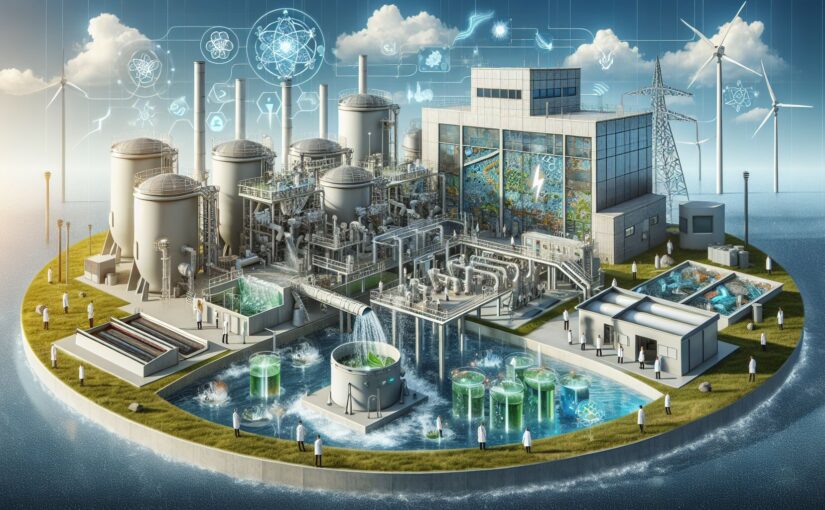Today, mankind stands at the crossroad of global climate crisis. We are altogether seeking innovative strategies toward green technologies and sustainable sources of energy. One such revolutionary idea is to retrieve energy from wastewater. Yes, you heard it right: Renewable energy from wastewater!
The Breakthrough
The innovation lies in the heart of microbial fuel cells (MFCs), which rely on bio-electrochemical processes happening in wastewater. These bacterial populations work on the organic materials present in the wastewater, at the same time producing electrical energy.
How it’s Working?
The working principle is quite simple yet intriguing. In an MFC, certain strains of bacteria treat the organic material in wastewater as food. As a by-product of this consumption, protons and electrons are generated. These particles are then used to generate electrical power.
It isn’t just electricity that we get as a result; the wastewater is simultaneously detoxified (treated) as well, solving two problems at the same time. Yet another advantage of this system is that unlike other energy resources, this one is continuous.
Where are we Now?
Several waste-treatment plants around the globe have started using MFCs toward pilot-scale demonstration. In the long run, this unique method contributes to a reduction in the energy consumption of these plants, eventually turning them into energy-neutral or even energy-producing facilities.
The Challenges Ahead
One barrier to the large-scale implementation of this technology is the cost and lifetime associated with the electrodes used in MFCs. However, progress is being made toward developing cost-effective and long-lasting electrode materials.
The efficiency and reliability of power extraction from these wastewater MFCs are constantly being investigated and improved. Still, at present, renewable energy from wastewater remains a promising strategy as we step into the era of a sustenance-based existence.
In the coming future, wastewater might not be seen as waste at all; it might become an asset, a true treasure.
Summary
From wastewater to power, the journey reflects human intelligence and creativity in using natural microbes to their advantage. However, we’ll need to make continuous efforts and research to further improve the efficiency, economic sensibility, and scalability of this method as a sustainable source of energy.
Sources
1. Wastewater treatment and renewable energy (ScienceDirect)
2. From wastewater to power (BBC News)
3. Renewable energy generated from wastewater (Waste Management World)
